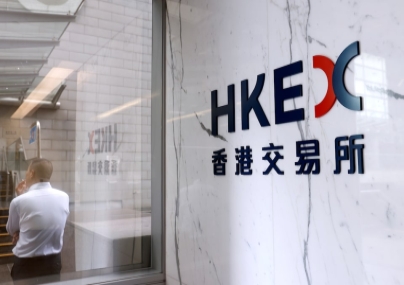
全球经济虽然在各地区增长步伐不均衡,在迎面挑战中充满韧性、跨境业务呈现出逐步活跃的趋势,法律服务提供者需要不断适应变化,以满足市场和客户的需求。
2024年整年,ALB在中国法律市场上共录得130余起合伙人级别的横向招聘,其中各个季度的招聘市场表现趋于平衡。
法律猎头公司优泽人才的合伙人刘泽南告诉ALB,由于市场参与者面对市场不确定性表现出更高的接纳程度、复杂国际局势中的主要问题凸显,以及政府较为密集地出台刺激政策,中国法律招聘市场在2024年上半年先是较为安静,随后在下半年经历了逐步回暖。
“全球经济活动仍具备不确定性,因此法律招聘市场需要足够时间反应。而伴随着下半年企业经济活动趋于活跃,法律行业也跟随企业的步伐而发展,律师、法务的招聘计划随之逐步实施。”刘泽南说。
根据ALB的数据,中国所方面,竞天公诚、汉坤、环球、中伦等在人才吸纳方面较为突出;国际所方面,ALB录得20宗左右招聘,其中毅柏、伟凯、罗夏信在人才吸纳方面占据领先地位,不过新加盟合伙人主要集中在其香港办公室。
“针对律所和公司的招聘,就专业领域而言,大合规业务,知识产权业务、跨境商务等领域展现出了较高的活跃度;而资本市场、私募股权投资、投资并购等的招聘活跃度在上半年处在低潮,在下半年有所回升。从地域来看,北京、上海、香港对于法律人的吸引力一如既往。而伴随着中国公司不断“出海”,东南亚及欧洲也成为了公司律师招聘的热门地。”刘泽南观察到。
热门需求
2024年,哪些领域的法律人最受青睐?在一个愈发多变的市场,具有怎样软硬实力的法律人才更有可能脱颖而出?
刘泽南观察道:“随着中国企业的出海活动越来越频繁,律所与企业在大合规及知识产权领域都出现了大幅的招聘活动。就行业来说,新能源、电商、家电、游戏、电子元器件、通信、芯片、半导体等领域持续发展,出现了较多的法律类招聘活动。”
在合规领域,地缘政治紧张局势和贸易保护主义政策导致跨境贸易摩擦增加,中国企业出海面临着更多的贸易壁垒和合规风险。因此,应对外国监管机构、展开合规管理、进行风险评估的法律服务需求不断增加。
在知识产权领域,中国全球经济正在向创新驱动转型,知识产权保护的重要性日益凸显,尤其是伴随中国企业全球化运营的发展趋势,企业海外知识产权申请数量明显增多。应对国际市场上更为严格的知识产权保护,中国企业面对更多的跨境知识产权摩擦与争议。因此在法律业务中,涉及国际知识产权诉讼和仲裁的服务需求不断上升。此外,基于行业报告和市场信息,商事争议解决领域的招聘活动也处于稳定状态。
一个有趣的观察是,企业在监管合规压力下扩大法务人员招聘,这一定程度引发了整个法律招聘市场的活跃。“企业法务的数量虽然变多,但整体合规业务需求大幅增加,律所的业务量也随之变大,人员招聘需求也增大。”刘泽南说。
不过,“企业与律所在投资并购领域的招聘上表现出不同。企业出海目标坚定,但并购交易与以往相比,面对国际局势和经济环境带来的更多不确定性,企业增加了对于优秀的跨境交易律师的招聘需求,而律所没有。如今融资手段与组合丰富;为了满足监管要求,帮助企业调控风险,交易模式多变。企业为获得足够深入和全面的法律建议,更倾向于吸纳具备丰富经验的交易律师成为法务,从而进一步提升企业在例如供应链安全、科技并购、一带一路开发、储能发电及矿藏领域的项目实践能力与动力”,她说。
人才流动
在人员流动上,2024年一个不容忽视的趋势是伴随国际律所持续退出或缩减中国布局,原本常驻内地的国际所专业人才正在不断向中国本土律所进行流动。
不过,根据刘泽南的观察,国际所在各大跨境项目中仍然多次参与。而伴随中国律所的国际化进程不断加强,双方之间的人才流动为中国所带来了更多服务国际项目的能力。
她指出,在跨境项目中,国际所在不同法域积累的对司法体系和监管环境的深入理解,在对尽调商业标的文化上的熟识程度,都具备很大的优势;此外,国际所律师对普通法的深入理解以及先例案件的经验积累同样是不可小觑的能力。
此外,过去一年中国所出现了 “扎堆出海”的趋势,据ALB不完全统计,至少37家中国律所新设立了超80家境外办公室。中国所走出去的步伐在加快,尤其倾向于在东南亚、美国、新加坡等地设立办公室,此外还包括非洲南部和西部、中亚、中东等新兴市场。刘泽南观察,“国际化脚步的加快带动了国际服务能力的加深,从而使中国律所以更加深入、完整且全链条地服务国际项目为目标。”
“在这个过程中,国际所和中国所会逐步达到一种服务能力和市场机会的平衡。”刘泽南预期道。
趋势与建议
虽然持续变化的市场带来了更多新机会,但也让法律人在择业过程中更为审慎。刘泽南表示,在过去一年的律所/法务团队与候选人双向选择的过程中,需要法律招聘专家对双方进行更多的预期调整,促使其坦诚沟通,清晰表达对彼此的期待。
刘泽南告诉ALB,对候选人来说,薪资增长仍然是工作变动的核心动力;其他被依次重点考虑的因素有职业稳定、灵活办公、业务自主权和互相尊重。
与此同时,律所和企业对候选人的技能需求也愈发全面复杂了,在较高的专业技能要求下,三个着重被考虑的软性素质包括应变能力、有韧性、以及服务精神。因此,“寻找具有竞争力的优质人才”成为了一个永恒的命题。
“如今的招聘市场还有一个很大的特点:注重双方价值观的匹配。”刘泽南补充道,面对雇主的商业策略和业务领域,“候选人常会基于自己的人生、社会经验,对未来可能奋斗的职场做出价值判断,这也是个体在面对当今世界格局不确定性下的价值选择。
谈及对于雇主与候选人的建议,在刘泽南看来,“变化将是常态”。她指出,候选人应积极拥抱变化、不畏挑战,始终保持适应和调整的态度。“大家要勇于抓住机遇、积极投入,努力提升实践经验。同时,也需要对新事物保持高度警觉,对不确定性做好心理建设,对市场动态和专业领域的最新信息保持敏锐关注。”
从律所及企业层面,刘泽南表示,雇主在面临发展挑战的同时,也同样拥有诸多机遇。“说到底,雇主的期望主要通过员工来实现。在复杂的经济环境下,雇主的期望会变化,员工的需求也会变化。因此在管理过程中应始终坚持以人为本的原则。没有可以适用于所有预期和场景下的人才。最重要的是平衡员工个体的既有能力与需求,人的潜能,以及通过团队所能实现的人的合力,来评估和实现不断变化的预期。
对于2025年的法律招聘市场,刘泽南依旧抱持有信心——虽然其中可能蕴藏着挑战。“市场表现出回温趋势。香港资本市场活动有所增加,这很大程度会从源头带动整个大中华区法律业务市场逐步回暖。而随着中国企业的国际化进程持续没有停歇,中国企业会在投资业务上争取更多的话语权,从而使得中资机构、中国法律人在跨境项目中获得比以往更为重要的位置。”
“社会高速发展,挑战性越来越强,保持信心变得尤为重要。适应变化、抓住机会,是我们需要持之以恒做到的事情。”刘泽南说。
AN EVOLVING HIRING MARKET
Despite uneven economic growth across regions, the global economy remains remarkably resilient amidst challenges, with cross-border business gradually picking up. Legal service providers are adapting to meeting client demands from the evolving market.
In 2024, ALB recorded over 130 partner-level lateral moves in China’s legal market, with hiring activities relatively balanced throughout the year. Liu Zenan, a partner at legal recruitment firm RIGHT Search & Selection, notes that the market remained quiet in the first half but warmed up in the second half as business activities picked up.
On the Chinese firm front, Jingtian & Gongcheng, Han Kun, Global Law Office, and Zhong Lun stood out in attracting talent. Among international firms, approximately 20 notable hires were recorded, with Appleby, Stephenson Hardwood, and White & Case leading the way. However, most new partner hiring for international firms were in their Hong Kong offices. Estimated by ALB.
For both in-house and law firms, hiring for intellectual property (IP), and cross-border business commercial were active; and hiring for capital markets, private equity, and M&A investment were more subdued in the first half but had a rebound in the second half. Beijing, Shanghai, and Hong Kong remain as key talent hubs, and Southeast Asia and Europe emerge as recruitment hotspots for in-house counsels as Chinese companies accelerating overseas expansion. Liu observed.
Areas in demand
What practice areas had active hiring in 2024, and what qualities could set apart the top candidates in the current market? Liu observes that China’s growing outbound activities have driven significant recruitment in compliance and IP protection. Industries such as renewable energy, e-commerce, home appliances, gaming, electronics, telecommunications, and semiconductors experienced strong legal hiring demand.
In compliance, geopolitical tensions and protectionist trade policies have increased cross-border trade frictions, creating higher compliance risks for Chinese companies expanding overseas. As a result, demand has surged for legal professionals skilled in navigating foreign regulatory frameworks, managing compliance programs, and conducting risk assessments.
In IP, China’s shift toward innovation-driven economy heightens the importance of IP protection, following a notable increase in the enterprises’ IP applications overseas. China companies are encountering more friction regarding IP due to stronger enforcement of IP laws in other countries, which leads to increased disputes and concerns about infringement. Therefore, the demand has increased for IP lawyers specialized in international IP litigation and arbitration.
Hiring in commercial dispute resolution remained steady, reflecting consistent market activity. Increased regulatory pressure has also driven corporations to grow their in-house legal teams, which in turn has stimulated hiring at law firms, Liu notes.
However, corporates and law firms have different hiring needs regarding M&A lawyers. Corporations increased hiring demand for experienced M&A lawyers to navigate them through the heightened uncertainties faced in a deal due to geopolitical and economic challenges, while law firms not.
"To manage financial and regulatory risks corporates exposed to, M&A deals are now have more complex deal structures and varied financing means ," Liu explains. "To address these challenges, companies are hiring experienced transaction lawyers as in-house counsels to strengthen their capabilities to invest, especially for the purpose of supply chain security, technology acquisition, Belt and Road initiative, energy storage and electricity generation, and natural resources development."
Talent mobility
A key trend in 2024 was the steady movement of professionals from international law firms scaling back in China to domestic firms. Despite their reduced presence, international firms have maintained involvement in major projects, while the increasing internationalization of Chinese firms has enhanced their ability to handle global assignments.
According to Liu, international firms has been repeatedly involved in cross-border deals. Meanwhile, the growing internationalization of Chinese firms and the talent flow from international firms to Chinese firms have significantly enhanced the ability of Chinese firms handling global assignments.
Liu identifies the strengths international firms displayed in cross-border deals. These include the thorough knowledge of diverse jurisdictions and regulatory landscapes, the culture familiarities to the commercial target in due diligence, and the precedent deals accumulated in a region.
Meanwhile, Chinese firms showed a strong trend of overseas expansion over the past year. ALB estimates at least 37 firms established more than 80 new overseas offices, focusing on regions like Southeast Asia, the U.S., and Singapore, as well as emerging markets including South and West Africa, Central Asia and the Middle East. Liu notes that this rapid expansion has deepened Chinese firms’ capabilities to provide one shop service on international projects.
“In time, it would gradually strike a balance between Chinese firms and international firms in the Greater China market regarding service capabilities and service opportunities,” Liu predicts.
Trends and recommendations
A dynamic market brings new opportunities and more cautiousness to job seekers. Liu says that successful placements in 2024 requires recruiters to bridge the expectation gap between employers and candidates by let both sides frankly communicate their needs and goals.
“Candidates are still mostly motivated by higher compensation in a job move. Other factors being weighted in a sequence are job security, work flexibility, autonomy, and mutual respect. On the other hand, employers set higher bar of technical skills, and examine more commonly the soft skills of adaptability, resilience, and service attitude.
“Candidates’ worldview and personal value shape their perception of an industry or the employer’s business strategy. Aligning candidate’s personal value and worldview with the employer’s business strategy plays a more pronounced role in a hunting.” Liu observed.
Liu emphasizes adaptability for both candidates and employers. Candidates should embrace change, seize opportunities, and stay agile to market trends and industry advancements. Employers, meanwhile, should always be people-first, and balance employees’ skills and potential to meet evolving goals. “No one could be a universal solution. Success lies in leveraging individual and team strength to adapt to change,” says Liu.
Looking ahead to 2025, Liu remains optimistic. “The market is recovering. The Hong Kong stock market signals warming up, which is likely to boost the Greater China legal sector. Chinese companies continue global expansion and seek for more influence in the cross-border projects, which promotes the role Chinese legal professionals assume .” “In a rapidly changing environment, maintaining a positive outlook is crucial. Adapting to change and seizing opportunities must be prioritized,” Liu concludes.


